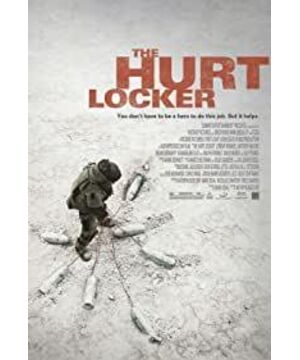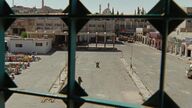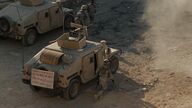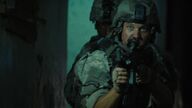The first is the mainstream movies that are currently being shown, especially those that compete with each other in film awards. Since its release, the film has "won" more than a dozen large and small awards, most of which are film critic awards. In the Golden Globe Awards announced on January 18, "The Hurt Locker" had no particles. Cameron and his ex-wife Catherine Bigelow duel has also become wishful thinking of the media. Compared with the various film critic awards that represent the interests of movie fans, the Golden Globes and Oscars represent the attitudes of ordinary audiences and the American film industry. The "preferential treatment" and "cold reception" that "The Hurt Locker" received at the film awards may indicate the differentiation of the movie audience's taste: even the best works have to "choose" the audience, and cannot be compared with the "all-in-one" "Avatar" Compare. I don't intend to belittle "Avatar" and promote "The Hurt Locker". I just want to arouse the audience's attention to this film. Sometimes film critics have to act as a voluntary advertisement.
Another coordinate is war films, especially war-themed films with a reflective nature. Some foreign film critics praised "The Hurt Locker" as the best movie of the Iraq War theme so far, because other movies of the same theme are mediocre. Such comments sound more ironic than admiration. Therefore, finding suitable comparison objects for the film has become an urgent matter. No doubt, we thought of Vietnam War films that produced a large number of excellent works. I divided the Vietnam War films into three levels according to the depth of film reflection: one is simply to arouse people’s hatred of war by the blood and cruelty of the picture, and a large number of mediocre works belong to this category; the higher level is based on the war. The human situation reflects the absurdity of ideology and satirizes real politics at the same time, represented by De Palma’s "Vietnam War Trauma" and Kubrick’s "Full Metal Shell"; a higher level is the depiction of war against people Distortion of his mind, but this kind of psychological portrayal must have a real thickness, such as "Deer Hunter". There is another category that belongs to the third level and surpasses the third level, such as "Apocalypse Now". War not only distorts the mind, but also gives people insight into the fundamental nihilism of human existence, just like Colonel Kurz said. "Fear! Fear!" The meaning of the movie is no longer limited to war. "The Hurt Locker" has such subtitles in the opening title: "In battle, hurricane assault is often addictive, strong and deadly; because war is like drugs." The main focus of the movie is not on visual cruelty, but on the impact of war. The influence of human psychology, undoubtedly, director Catherine Bigelow is in line with the highest level of anti-war movies.
The main part of the film begins with the arrival of bomb disposal expert William James in Baghdad, succeeding his sacrificed predecessor. Unlike his teammates, James is not in a state of trembling fear and praying like "Today we survived" like his teammates. He is more like a lunatic who doesn't know what death is. After he arrived, the robot used for bomb disposal was abandoned. When he came up with a bunch of bombs, he could take off the heavy explosion-proof suit for more concentration. This old man seems to regard dangerous work like bomb disposal as simple as repairing a car. Moreover, he was obviously "obsessed" in the process of bomb disposal. When people had evacuated the bomb and could detonate it safely, James refused to evacuate, and continued to dismantle the bomb when it might increase the danger of his teammates. To be sure, James gained a strong sense of pleasure during the bomb disposal process. When he finished dismantling the bomb and returned to the "Hummer" to light a cigarette, his expression was as tired and content as he had just finished making love. After recovering and returning to China, he was panicked, and soon returned to the battlefield under the attraction of such pleasure.
Director Catherine Bigelow did not directly make moral judgments about war in the film, that is, with a few exceptions, she did not use the cruelty of the war scenes to arouse the audience's humanitarian sympathy, nor did she create dramatic scenes to satirize the United States for launching war. Of course, she did not "stand" on Iraq's political mistakes and view the current war from their point of view. Perhaps it is precisely because the film’s "realistic criticality" is not strong that it has one of the biggest misunderstandings of it: that it is considered to be a film that promotes personal heroism, and even that it is a "conscription advertisement" of the US government. . This view believes that James' "walking in the clouds" on the battlefield is an act full of heroism, and the intention of the whole movie is to make people forget the fear of war, and fulfill the mission with due diligence on the battlefield like James.
I think this kind of interpretation ignores the relationship between the character’s psychology and the environment in which it is shaped, as well as the paradox of this so-called "heroism" itself, just like an elder in the film industry in China, "General Patton" It is interpreted as a militaristic movie that ignores the contradiction in the role of Patton.
In the film, after Sergeant James dismantled a car of dangerous bombs, an officer expressed his admiration and asked him how many bombs he had dismantled. After a brief period of humility, James replied affirmatively: "873, sir. ". Why does he remember so clearly? Because he collected all the detonating tubes that he removed. Dismantling bombs is no longer just his job, but a certain mission that must be completed. Under this mission awareness, he treasures the bombs that have been dismantled. The audience can even speculate that the sergeant might have set himself a goal of how many bombs he needs to dismantle! This reminds me of another film nominated for the Golden Globe Awards, "In the Clouds". The layoff expert starring George Clooney spends more than 300 days a year on business trips. He has no concept of a home, or he has regarded the plane and the airport as his home. One of his goals is to travel 10 million miles by plane and become the most senior member of the airline. In his history, only 7 people have reached this record, which is less than the number of people who have been on the moon. Clooney's joy in this flight record is the same as James' ecstasy during the bomb disposal process. Whether you think this kind of pursuit is naive or abnormal, it is determined by a person's lifestyle and environment. People must "adjust to local conditions" to find a basis for the authenticity of their own existence. When a person is on the battlefield, he has witnessed innocent killings and bloody ugliness. He has no illusions about politics and cannot find sustenance from his family. In order to avoid becoming a zombie, he must find the basic value and reason for his existence. As a result, the bomb disposal work that had to face at the risk of life has become this value and reason. This is absurd, abnormal, and deformed, but it is objectively shaped by war, and to a certain extent it is irresistible. It's like opium, it makes people want to stop. Before returning to the battlefield, James said to himself to the younger son, "Then you will forget the few things you really love. When you grow up to my age, they may be just one or two things. There is one left." The last thing he left was the bomb disposal.
Let's talk about this so-called "heroism." When a person holds firm beliefs, a clear sense of self, and at the same time shows courage and courage beyond ordinary people in his actions, and achieves achievements that benefit the group, we say that his behavior is heroic. And what about James in the movie? He may have courage and courage, but his self-awareness has long since become blurred and obscure. Before returning to the battlefield, he said to his ex-wife that "they need more bombers" is more an excuse than a belief. More importantly, his fascination with bomb disposal will inevitably lead to his death. There is no heroism that does not love life, and is so eager to seek death. James' bomb disposal has long become like the Russian roulette in "Deer Hunter". It is a crazy way to end life and a means of liberation.
One thing that is commendable in this film is that the director's scene scheduling excellently created a sense of the war scene. The audience in the cinema followed the bomb disposal team on the battlefield with nervousness, heartbeat, and anxiety, and was finally released. The non-plot structure of the film also makes it very documentary. When the director was shooting, he had three or four cameras facing the target at the same time, capturing the visual information of the scene from different camera positions, and then editing the materials shot by different cameras. Few shots of the final "Hurt Locker" lasted more than 3 seconds, and the number of shots far exceeded that of ordinary movies.
What I want to say is that "The Hurt Locker" may have a record value, but the aesthetics of the whole film is not based on the documentary nature of the camera, not for "completely" capturing the existence of the object, it is based on a certain psychology, Based on how people on the battlefield feel about war. With such a large number of ultra-short shots to compose a movie, there must be a certain editing logic between shots. In some cases, the lens mimics the gaze of the bomb disposal team. When James disposes the bomb, the other team members must pay close attention to the changes in the surrounding environment. Their gazes must change and move quickly. Behind this lens (gaze) is the psychological state of the characters on the battlefield. The director extended this shot to the entire movie, not only during the bomb disposal process, when the players were resting in the barracks, and even when James played football with the Iraqi kids selling DVDs, they also used this highly variable short shot. The psychological effect of such an application is amazing. The tension on the battlefield has receded to the second place. Such shots and editing suggest the psychological abnormality of the characters. They can no longer fully observe things in a normal way. Their attention is forced to shift and distract constantly. They are all fragments, discontinuous, and they cannot have a sense of the whole surrounding existence. This is a bit like the feeling after smoking opium. This is a process in which a person is gradually annihilated in the environment, and the person's self-consciousness is gradually lost. There are only two exceptions in the whole film. One is that the duration of the several sets of shots after James returned to China has been significantly longer. However, it is this change that implies the discomfort after James returned to a peaceful state. Another exception is the slow motion of mud and rocks rising from the ground and sniper rifle shells landing when bombs exploded under high-speed cameras. Rhythmically speaking, these two lenses have a balancing function, and at the same time, they also have a psychological meaning: it is like the last glimpse of the world before a person completely loses himself (death).
A good movie requires the form and content to be fully integrated and perfectly serve the theme. I think "The Hurt Locker" basically achieved this.
————————————————————
Personal public account: Jiashua
is updating India travel diary on the road , welcome to pay attention!
View more about The Hurt Locker reviews











